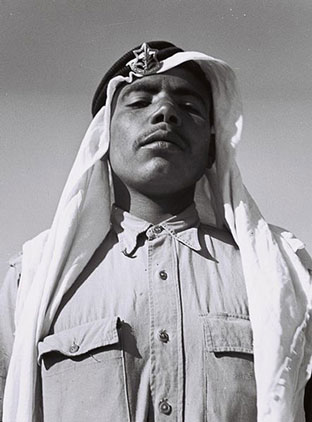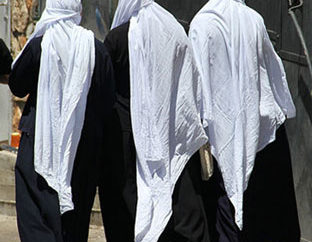Bedouin History in Israel
Bedouins in Israel
Most of the some 160,000 Negev Bedouin originally arrived at the borders of Israel from the Hejaz, a region in the north of the Arabian Peninsula from where they migrated between the 14th and 18th centuries. Some also descended generations ago from African slaves.
Unlike the Bedouin in the Negev and Central regions, the approximate 70,000 Bedouin in the Galilee and the Jezreel Valley hail from the Syrian desert. Another ten thousand Bedouin or so live in central Israel.
The Bedouin in Israel are “an island in time,” scattered communities of Arabs that have preserved a desert-dwelling, tribal-oriented lifestyle.
The Bedouin
Assimilation of the Bedouin into the culture of modern Israel is a fascinating blend of two strikingly different peoples creating a synergy. In the 19th and early 20th centuries, neither Turkish nor British occupiers of the Middle East could conceive of any kind of modern life in the desert, so the Bedouin were left largely to their own devices. With the declaration of the State of Israel in 1948, only some 10,000 Bedouins out of several times that number chose to remain in the Jewish state. With the highest birthrate in the State of Israel (approximately 5%), the Bedouin are an Arab minority with a recognized place in Israeli society.

Old Bedouin Women Learning (Photo: צולם על ידי מחמד, CC BY 2.5)
Bedouin People in Israel
Modern health and medical services with easy access have reduced infant mortality and increased life expectancy. Bedouin expert Dr. Clinton Bailey of the Harry S. Truman Institute at Hebrew University notes that Israel was the first body to take any interest at all in the Bedouin people, granting them citizenship and providing them with education and medical care. Under the Israeli Compulsory Education Law, every Bedouin child is entitled to twelve years of free education and the law is very strictly enforced, certainly at the elementary-school level. Older Bedouin can easily recall the days when they lacked any formal education by Western values. Within a single generation, the Bedouin of Israel have succeeded in reducing illiteracy from 95% to 25%; those still illiterate are aged 55 and above.

Street in Tel Sheva (Photo: Idobi, CC BY-SA 3.0)
New Bedouin Communities
In the 1970s and 1980s, grazing restrictions and limited access to water, electricity, roads, education and health care led tens of thousands of Bedouin citizens of Israel to resettle in seven legal towns constructed by the government. The first Bedouin town, Tel Sheva, was founded in 1967. Since then another six towns have been established in the Negev and an effort was made to learn from each previous experience. But many Negev Bedouin were not ready for the transition of moving from their centuries-old, desert-based culture into an urban lifestyle. The permanent residences inevitably led to tension between the younger, educated generation and the traditional leadership of Sheikhs and heads of tribes. The latter are being gradually replaced in their local councils and among heads of organizations working in the fields of civil rights, welfare, religion and education.
Negev Bedouins
Today, about half of the Negev Bedouin still live in rural localities, outside the seven “Negev Bedouin towns.” There are plans to found such rural localities and it is hoped that they will satisfy the traditional aspirations of the Bedouin nomads. In 1986, the government established a directorate for the promotion of Bedouins in the Negev, aimed to serve as a central authority for attending to the Bedouin population in unrecognized Bedouin tent settlements, working in collaboration with all government ministries. Leaders of the 45 unrecognized settlements united the villages in 1997 under a regional council. Appeals to the Supreme Court enabled some of the villages to gain services in health, education and infrastructures. Schools were built near main roads and in proximity to large concentrations of the population.
Bedouin History in Israel: Did You Know?
Towards the end of the British Mandate and during the struggle for the establishment of the State of Israel, many Bedouin joined the Jewish forces. Today Bedouins, although not obligated to serve, volunteer and provide essential tracking skills protecting Israel’s borders.








